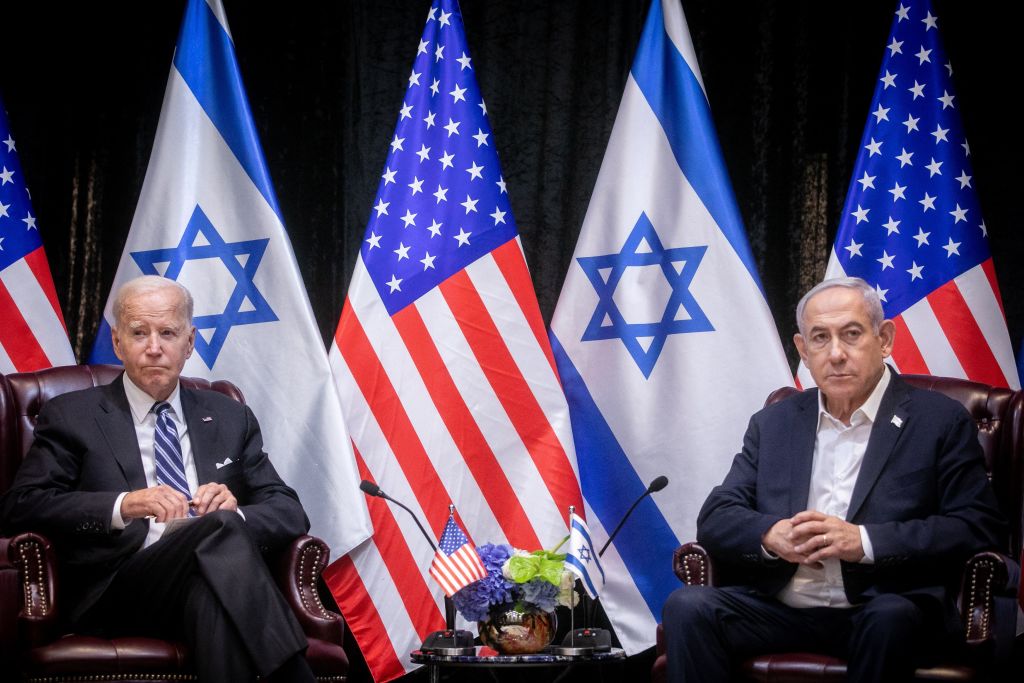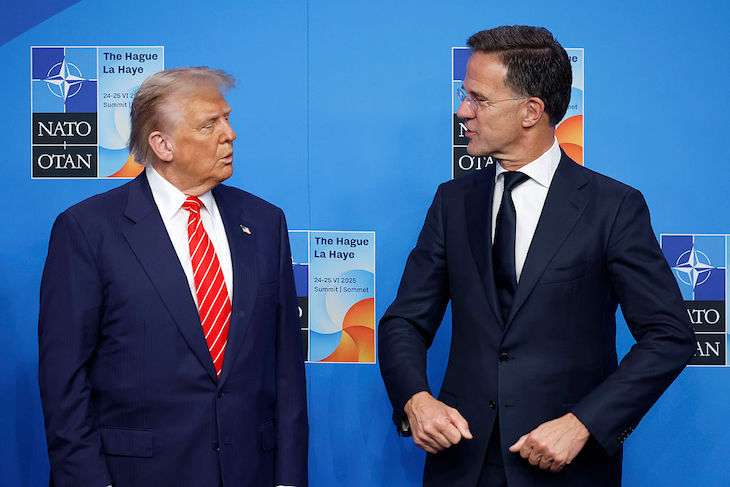President Biden doesn’t give many sit-down television interviews, but when he does, he tends to make news. This week he sat down for an on-air session with CNN’s Erin Burnett, who asked him point-blank whether US bombs given to Israel have caused civilian casualties in Gaza.
Biden’s response was notable not necessarily because the answer was a mystery (of course US bombs have killed civilians there) but rather because Biden showed a considerable degree of frustration with Israel’s war strategy. “Civilians have been killed in Gaza as a consequence of those bombs and other ways in which they [Israel] go after population centers,” the president said. “I’ve made it clear to Bibi and the war cabinet: they’re not going to get our support, if in fact they go on these population centers.”
Israel has grown entitled of America’s support
Biden’s remarks, in tandem with defense secretary Lloyd Austin’s confirmation that a shipment of 1,800-2,000-pound bombs (along with 1,700 lighter munitions) destined for Israel was paused, caused heated reaction on all sides of the debate. For progressive Democrats, the suspension was seven months too late; for Republican lawmakers and some moderate Democrats, Biden was effectively handing Hamas a propaganda win.
Israeli prime minister Benjamin Netanyahu and his cabinet members were livid at the news. Netanyahu defiantly produced a short video in which he said Israel would win the war alone if need be. Other criticisms were downright insulting: national security minister Itamar Ben-Gvir, convicted of supporting a terrorist group in his past life, bluntly stated that Hamas loved Biden.
You can’t blame Netanyahu for feeling a little surprised. Before this week, Biden went out of his way to disabuse anybody of the notion that US military support was conditional in any way. Since the war in Gaza started last October, the Biden administration has pretty much given Israel whatever it needed to fight Hamas — and then some.
Even so, Biden’s rhetoric became more wary as the Palestinian death toll got larger. In December, he told donors at a fundraiser that Israel was bombing Gaza “indiscriminately.” In early April, as famine was beginning to creep into parts of northern Gaza, Biden told Netanyahu in a phone call that future US support would be determined by Israel’s cooperation in allowing humanitarian aid into the enclave. With the exception of a few days of greater humanitarian deliveries into Gaza, Biden’s threats didn’t really get him anywhere. The death toll is now approaching 35,000 Palestinians, the humanitarian situation remains dismal and top UN officials like Martin Griffiths continue to warn that civilians are being starved.
If we take him at his word, Biden has run out of patience with Netanyahu and the band of far-right ministers propping up his government. That’s one part of the story. The other, more significant, part is that the United States is finally using some assertiveness when it comes to its Israel policy. While this isn’t unprecedented in the history of US-Israel relations — Ronald Reagan held up F-16 fighter jet deliveries to Israel on multiple occasions during his first term — using the stick has become increasingly rare over the last quarter-century. The US-Israel relationship is viewed almost as untouchable, where even the slightest disagreements are kept behind closed doors or swept under the rug.
Comparably speaking, it’s abundantly clear that the United States is the senior member in this relationship. The power metrics don’t lie. Israel’s $525 billion economy makes up 2 percent of America’s. Demographically, there are about as many Israelis as there are North Carolinians. While Israel is a nuclear weapons power with the most formidable defense force in the Middle East, it can’t compete with the US military (nor does it have to).
But US-Israel ties are a bit of an anomaly in that the wealth and power disparity between Washington and Tel Aviv doesn’t necessarily translate into America calling the shots. Indeed very often, it looks like the US is doing Israel’s bidding. It’s the US, not Israel, acting as if it was the junior partner trying to get on its patron’s good side.
Examples abound. When the US leverages its veto at the UN Security Council, it’s typically to shield Israel from some form of international censure, whether on the subject of Israeli occupation of Palestinian land, Israeli settlement activity in the West Bank, the unilateral recognition of a Palestinian state or more recently the war in Gaza. The US across successive administrations, Republican and Democratic alike, have expended a lot of diplomatic capital in the international arena killing initiatives on Israel’s behalf. The status quo is so ingrained that when President Barack Obama ordered the US delegation at the UN to abstain rather than veto a resolution calling Israeli settlements illegal under international law (which, by the way, was already official US policy), the decision made global headlines.
The US has given approximately $300 billion worth of military and economic aid to Israel since its founding in 1946. This is a consequence of US presidents striking and implementing executive-level memorandums of understanding with their Israeli counterparts that guarantee billions of dollars in defense support to Israel every year. Although the US doesn’t have a mutual defense treaty with Israel like it does with NATO members, South Korea, Japan and the Philippines, most people expect that Washington would come to Israel’s defense in the event of an external attack (as it did in April when Iran launched a retaliatory drone and missile attack at Israel). Washington’s commitment to Israel is even enshrined in domestic law: the US must maintain Israel’s qualitative military edge in the Middle East. It must also ensure that any sale or export of US defense equipment to any other country in the region won’t negatively affect Israel’s military superiority.
There are those who argue that a stronger Israel is in the US national interest anyway, so what’s the harm of the status quo? Yet there is harm, and we’re currently seeing it on our television screens, reading it in our newspapers and watching as US and Israeli officials bicker about who’s right and who’s wrong.
Israel, having been the beneficiary of US security aid for decades even when its foreign policy undermines American objectives in the Middle East, has grown entitled of that support. This, in addition to the fact that Biden’s pause on munitions is occurring as the war in Gaza continues, explains much of Israel’s irritation. But the whole episode also explains something else: while the US-Israel relationship isn’t a one-way street, it has certainly favored Israel.
This article was originally published on The Spectator’s UK website.


























Leave a Reply